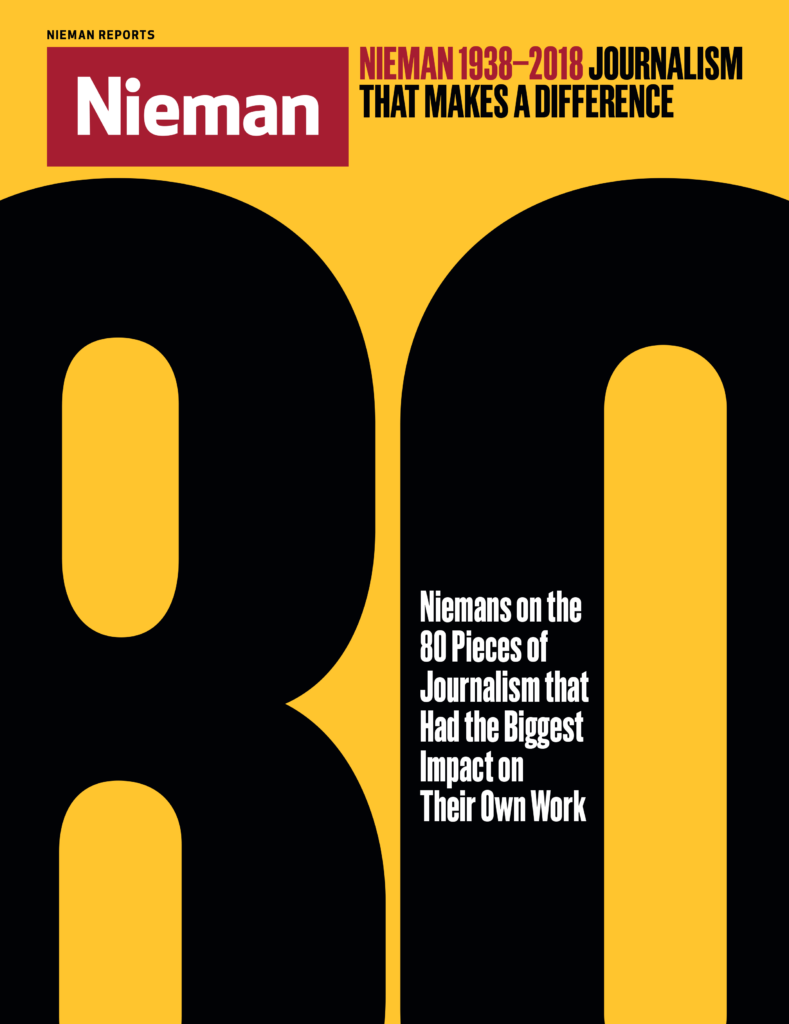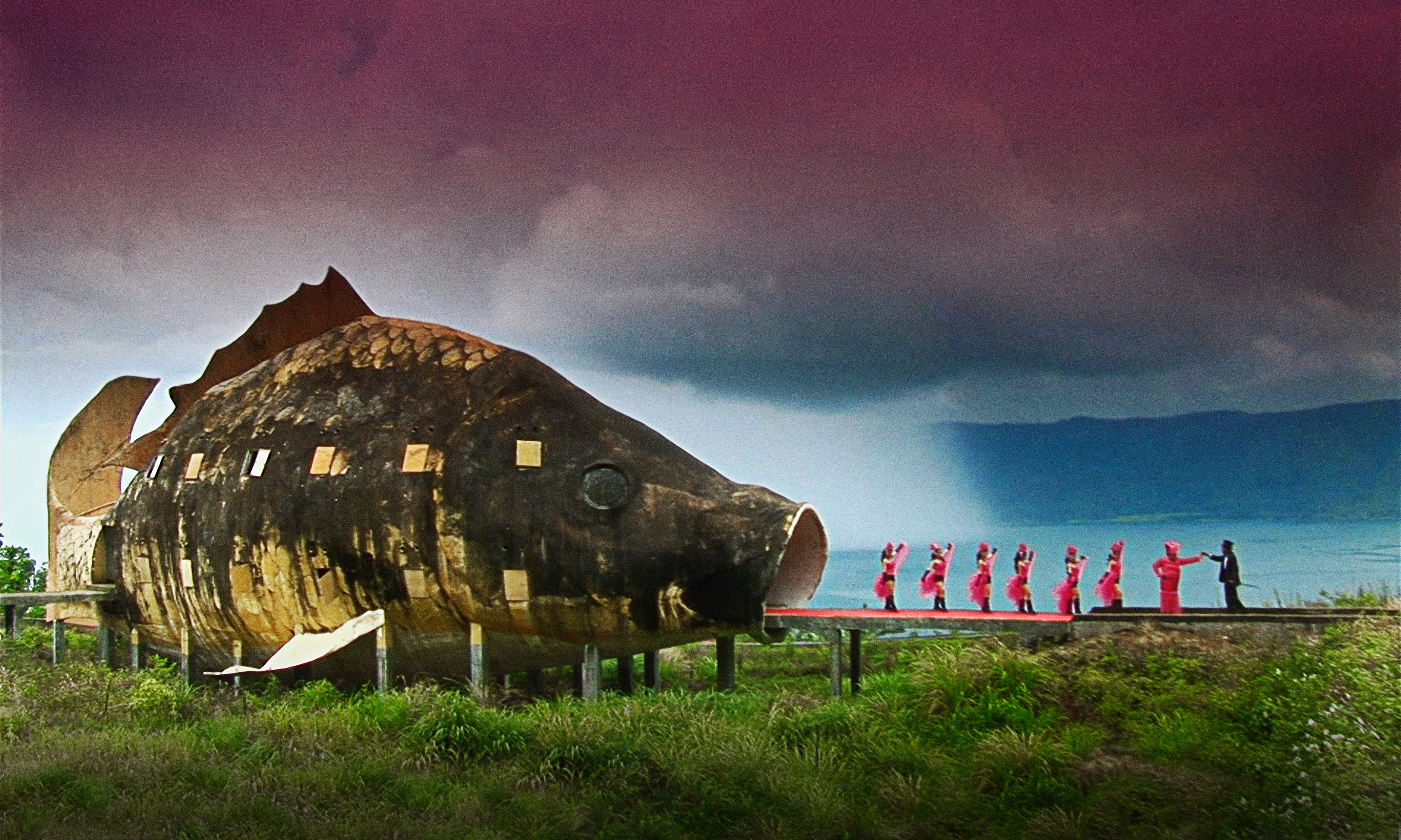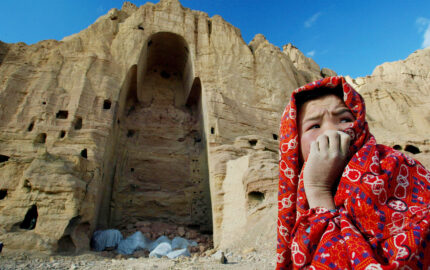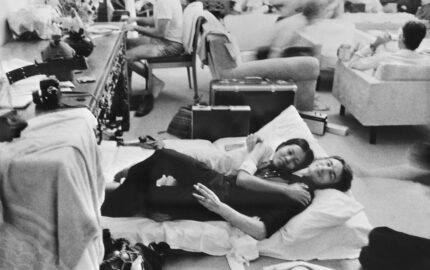
How are great journalists made? Often, it’s pieces of great journalism that help form them, influencing their lives or careers in an indelible way. To celebrate the Nieman Foundation for Journalism’s 80th anniversary in 2018, we asked Nieman Fellows to share works of journalism that in some way left a significant mark on them, their work or their beat, their country, or their culture. The result is what Nieman curator Ann Marie Lipinski calls “an accidental curriculum that has shaped generations of journalists.”
The mass killings in Indonesia in 1965-’66 left a deep mark on the nation’s collective psyche. Watching the documentary “The Act of Killing” about the atrocity when it was first screened in Indonesia in 2013, I felt shaken and nauseous. At the same time, I stayed alert because a vigilante group had threatened to storm the theater and stop the screening.
Not only does the film deal with a very controversial issue—the massacre of hundreds of thousands of Indonesians accused of being members or sympathizers of the Communist Party—but one of the killers, Anwar Congo, is the main storyteller. He explains in graphic detail how he killed his neighbors and other people he knew simply because they had a connection to a communist.
Since I was a child growing up in Bali, the story of the massacre had always been a taboo topic. It was a story so terrifying and grotesque that it haunted our lives and made us ashamed of who we are. My father’s generation—children when this atrocity occurred—grew up trying to forget it ever even happened.
When “The Act of Killing” was released, we welcomed it with a sigh of relief. Finally, the full story was told. From Congo’s narrative, we can see the beleaguered killer’s mind, caught between bigger forces, including a master puppet, who directed the killings from afar. Unable to make sense of the situation, Congo gives up, shuts his eyes, and gleefully follows instructions to murder his own people.
Tempo, the magazine that I work for, interviewed Congo and filmmaker Joshua Oppenheimer and exposed similar killers, other Anwar Congos, in other parts of the country. The documentary forces everyone to open their eyes, to see what happened, and how it has shaped us. It’s time to face our demons.
The Act of Killing
Directed by Joshua Oppenheimer
Produced by Werner Herzog and Errol Morris
Released Sept. 1, 2012
Excerpt
[Death squad leader in Indonesia] Anwar Congo: Did the people I tortured feel the way I do here? I can feel what the people I tortured felt. Because here my dignity has been destroyed, and then fear comes, right there and then. All the terror suddenly possessed my body. It surrounded me, and possessed me.
Joshua Oppenheimer: Actually, the people you tortured felt far worse, because you knew it’s only a film. They knew they were being killed.
Anwar Congo: But I can feel it, Josh. Really, I feel it. Or have I sinned. I did this to so many people, Josh. Is it all coming back to me? I really hope it won’t. I don’t want it to, Josh.



